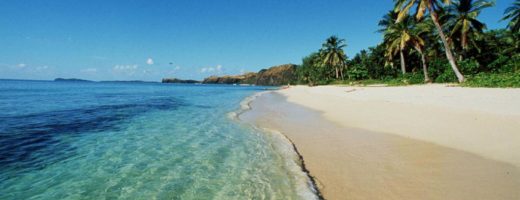Enclosed here are three stories from three different perspectives about gay life in Fiji. The first is a commentary from a cheerful gay Fijian who has experienced a mostly pleasant life being ‘out’ in the capital city of Suva and living with a boyfriend.
The second story is not cheerful: “I don’t recommend anyone gay visit Fiji. Rabid homophobia drove me out. Fiji is a very religious country and this controls everything that happens there, especially how they feel and act towards gays.”
The third story regards a notorious event that happened in 2002 when a prominent male couple were murdered. Because the men were gay, rumors swirled around the tragic and bloody episode about sex and drugs and intrigue. The story was posted worldwide and left Fiji, for a while, with a tarnished reputation as a tourist paradise.
Fiji is an island nation in the South Pacific Ocean occupying an archipelago of about 322 islands, of which 106 are permanently inhabited. In 1997 Fiji became the second country in the world to explicitly protect against discrimination based on sexual orientation in its Constitution. In 2006, the Fijian High Commissioner in New Zealand confirmed that there was a policy not to arrest gay men for consensual gay sex. In September 2007 the military declared–again–a state of emergency and ousted Prime Minister. In 2009, the Constitution was abolished. (A new one is due in 2013.) Since 1 February 2010, private, adult, consensual and non-commercial male and female homosexual conduct is legal under the Crimes Act 2010. However, discrimination based on sexual orientation or gender identity is not banned by the Fiji’s law. Fiji family laws does not provide legal recognition of same-sex marriage or civil unions. Since 2002, the law expressly bars government recognition of gay marriage. In 2011 the president of Fiji, Ratu Epeli Nailatikau, joined in the launch of a landmark UN report on men who have sex with men, transgender people and HIV. “Secret Lives, Other Voices”, subtitled “A community-based study exploring male-to-male sex, gender identity and HIV transmission risk in Fiji,” is the first such research to be conducted with MSM and transgender people in that country since 1998. (See Fiji News & Reports for 2011.)


